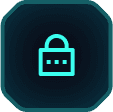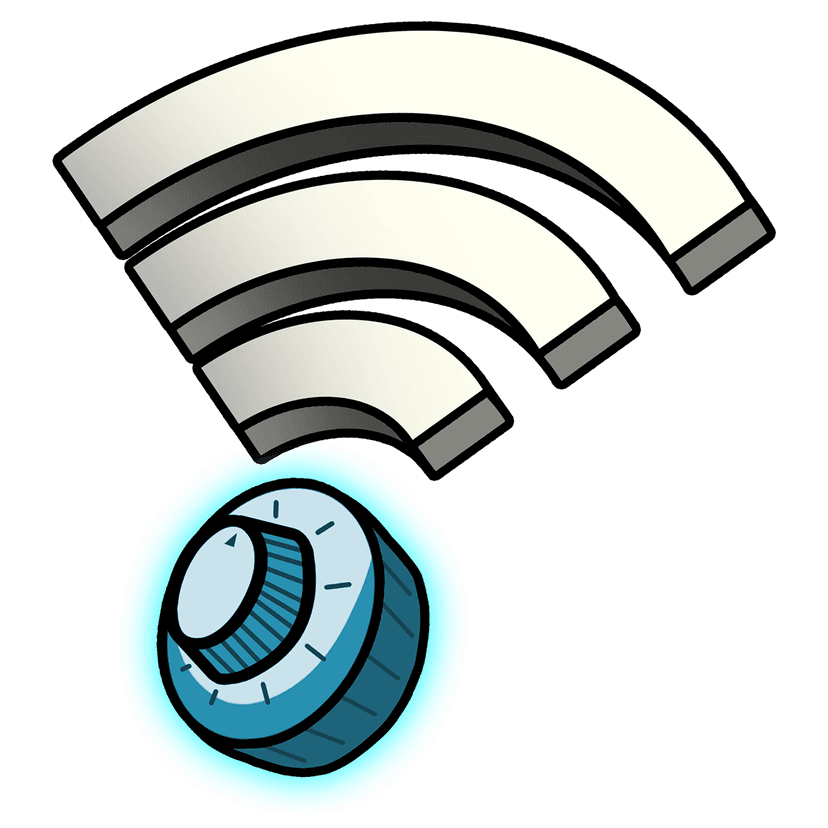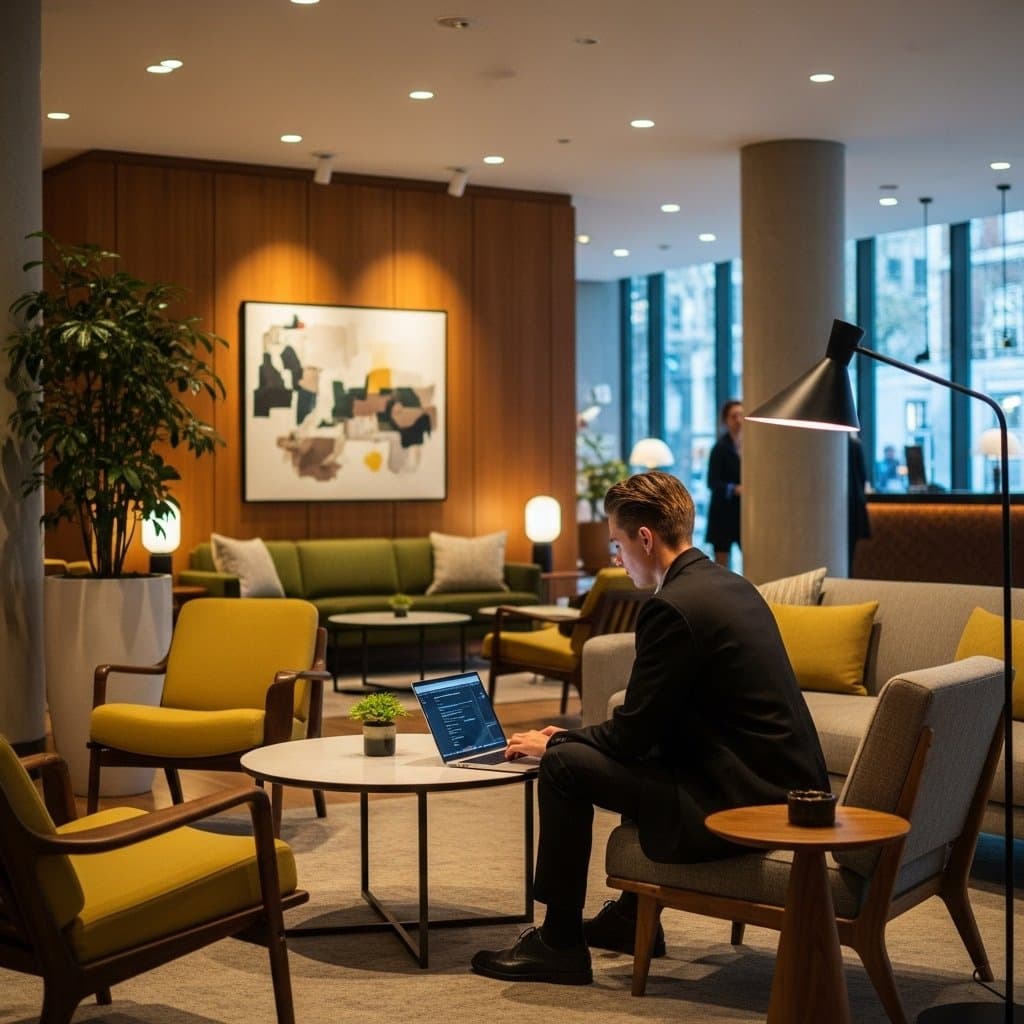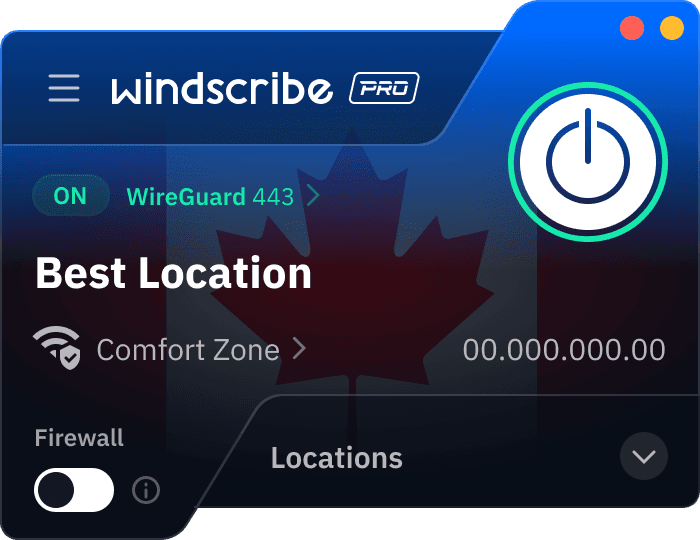
Best-in-Class Encryption

No Logs, No Tracking, No BS

Unlock Content in Any Country
Why Do You Need a VPN for Hotels?

Network Snooping
Hotels can see every site you visit. Hope they don’t judge.

Scammers on the Same Network
Someone in Room 302 could be monitoring your data right now.

Geo-Restrictions & Censorship
Hotel Wi-Fi blocking your favorite sites? That's fun.

Injected Ads & Tracking
Some hotels make money by stuffing ads on your connection.
How Windscribe Protects You on Hotel Networks
We’re not just another VPN: we go above and beyond.
- AES-256-GCM Encryption: Your data is locked down tighter than your minibar bill.
- No Logs Policy: We don’t track you. The hotel can mind its own business.
- Bypass Censorship: Access blocked content anywhere.
- Firewall Protection: If your VPN drops, your data doesn’t leak.
- Auto-Connect Features: Set Windscribe to auto-connect on hotel networks.

Benefits of Using Windscribe in Hotels
- Browse Privately: No tracking, no monitoring, no logs.
- Avoid Wi-Fi Fees & Throttling: Some hotels slow you down unless you pay more. We fix that.
- Access everything: Many hotels block streaming sites, like Netflix. Easily bypass these blocks with Windscribe.
- Connect on All Devices: Windows, Mac, iOS, Android, iPads, and more.

How to Stay Safe on Hotel Wi-Fi Networks
- Use a VPN to encrypt your connection.
- Avoid accessing sensitive information like your bank account.
- Log out of all sites and apps when done.
- Only access ‘HTTPS-secured’ websites.

Choose the Best VPN for Hotels
Windscribe helps you pick the right VPN to keep you safe on hotel Wi-Fi:
- Flexible plans, no lengthy contracts.
- Best-in-class privacy and security.
- Available on all your favorite devices.
- Friendly and responsive customer support.

1
Get the App
2
Sign Up
3
Connect
Loved & Trusted by Over 80 Million Users
Features
6 Encryption Protocols
Widest Server Reach
Most 10 Gbps Servers
Industry-Leading Ad Blocker
Privacy: Audited & Court-Proven
Features
Other VPNs
6 Encryption Protocols
Widest Server Reach
Most 10 Gbps Servers
Industry-Leading Ad Blocker
Privacy: Audited & Court-Proven
Frequently Asked Questions
Can Hotels See What Websites You Visit on Their Wi-Fi?


Absolutely. Hotel Wi-Fi is a playground for cybercriminals. Since these networks are often unprotected or have weak security, it’s really easy for malicious entities to intercept your data. They can use methods like Man-in-the-Middle (MITM) attacks to sneak between you and the Wi-Fi router, capturing everything you send and receive.
This means that your personal information, such as passwords, bank details, and even private messages, could be exposed. What makes it worse is that many hotel networks don’t just have open access, but they allow anyone to log in with basic credentials, so a criminal could easily join the same network as you.
Although it may seem harmless, the reality is that hotel Wi-Fi is a prime target for cybercriminals, so it’s better to be safe than sorry.
Is Hotel Wi-Fi Safe With a VPN?


Much safer, yes. A VPN encrypts your connection on any network, even – or especially – the open and unprotected ones. Think of a VPN on hotel Wi-Fi is as a security blanket for your data. When you use a VPN, it encrypts all the data leaving your device, turning it into a scrambled mess that no one can read, not even hackers.
So, even if someone is trying to spy on you over the hotel’s Wi-Fi, they won’t be able to see anything useful. This makes hotel Wi-Fi much safer, especially since these networks are often open and easy to attack.
Not only does the VPN protect your data from prying eyes, but it also hides your real IP address, making it harder for anyone to track your online activities. Using a VPN is the best way to make sure your privacy and keep your sensitive information safe while on hotel Wi-Fi.
Is It Safe To Use Hotel Wi-Fi With an iPhone?


Using hotel Wi-Fi on your iPhone is safer than using it on a laptop, mainly because iPhones don’t run as many services in the background that could be vulnerable. But that doesn’t mean it’s safe. Hackers can still try to intercept your connection, especially if you’re logging into apps or websites that aren’t encrypted.
A lot of hotel Wi-Fi networks also require you to go through an unencrypted login page, which is a red flag for anyone trying to capture your credentials. If you're not using a VPN, there’s still a risk, even if you’re on an iPhone.
The best way to protect yourself is to always use a VPN. It will encrypt your connection, even if the Wi-Fi network is insecure, and keep your personal data safe from potential threats.
Can Hotels See What Websites You Visit on Their Wi-Fi?


Yes, without a VPN, hotels can absolutely see what websites you visit while using their Wi-Fi. When you connect to hotel internet, all your traffic passes through their network equipment, giving them visibility into your online activities.
Most hotels use network management systems that automatically log domain names (like facebook.com) for troubleshooting and security purposes. If you're browsing unencrypted HTTP sites, they can potentially see even more detailed information about what pages you visit and what you do on those sites.
Some hotel chains go further by implementing content filtering tools that actively categorize and block certain types of websites.
Even with HTTPS encryption (the padlock in your browser), hotels can still see the domain names of websites you visit through DNS requests, though they can't view the specific content you're looking at within those sites.
For business travelers reviewing confidential documents or anyone checking personal accounts, this level of visibility creates legitimate privacy concerns that a VPN effectively addresses.
Can a VPN Bypass Hotel Captive Portals?


No. Captive portals control access on the local network. Until you sign in or accept the terms, most traffic is blocked, so a VPN can’t establish a tunnel.
How to use a VPN on a captive-portal network:
- Connect to the Wi-Fi.
- Open a browser; if the portal doesn’t appear, visit a non-HTTPS page (e.g., example.com) to trigger it.
- Complete the login/acceptance steps and confirm basic internet access.
- Turn on your VPN.
If the portal won’t show or the VPN won’t connect:
- Temporarily disable the VPN to reach the portal.
- Pause custom DNS or ad blockers until after login.
- Try a different browser or private window.
- If the VPN is blocked post-login, switch to a TCP-based protocol (often on port 443) or an obfuscated/stealth mode if available.
- Some networks intentionally block VPNs; in that case, usage may not be possible on that Wi-Fi.
Is It Legal To Use a VPN on Hotel Wi-Fi Networks?


Yes, using a VPN on hotel Wi-Fi is completely legal in most countries, including the United States, Canada, most European nations, and many other regions worldwide. VPNs are legitimate privacy tools used by millions of business travelers and tourists daily.
Can a VPN fix slow hotel internet speeds?


A VPN can sometimes improve hotel internet speeds, but not always. The relationship between VPNs and connection speed is nuanced and depends on several factors.
If a hotel is throttling certain types of traffic (like streaming services or video calls), a VPN can help by masking what you're doing online. Many hotels limit bandwidth for high-data activities to ensure all guests have usable internet, but a VPN makes your traffic unidentifiable, potentially bypassing these restrictions.
VPNs can also create more direct routing paths in some cases. If the hotel's default internet route to a particular website is inefficient, connecting to a strategically located VPN server might create a faster path.
However, it's important to understand that VPNs add encryption overhead that can slow down your connection. On very fast hotel networks, you might notice this small decrease, while on already slow connections, this additional processing might make performance worse.
For best results, try connecting to VPN servers close to your physical location to minimize latency while still getting the privacy and potential throttling bypass benefits.
What should I do if a hotel blocks VPN connections?


If you discover that a hotel is blocking VPN connections, you have several effective options to regain your privacy and security.
First, try switching to a different VPN protocol. Windscribe offers multiple connection methods, and switching from standard protocols to TCP port 443 (which looks like regular HTTPS traffic) often bypasses basic blocks. This option is available in the connection settings of your VPN app.
If that doesn't work, Windscribe's Stealth mode is specifically designed to circumvent sophisticated blocking techniques. This mode disguises VPN traffic to look like normal web browsing, making it particularly effective in environments with advanced filtering.
Another approach is to try connecting to less common server locations. Some hotels only block well-known VPN server addresses, so connecting to servers in less frequently blocked countries might work.
If all else fails and you absolutely need a secure internet, using your phone's mobile data as a hotspot (with the VPN running on your phone) provides a completely independent connection outside the hotel's control.
Is Hotel Wi-Fi Safe?


Hotel Wi-Fi isn’t the safest option out there. While it might seem convenient, it’s actually pretty risky. Most hotels don’t bother with proper encryption, which means that anything you do online, from banking to shopping, can be intercepted by someone on the same network.
Even if the Wi-Fi is password-protected, it doesn’t guarantee your connection is secure. Plus, many hotels use simple access credentials like "room number + last name," making it easy for anyone to connect to the network.
On top of that, hackers love targeting these networks, as they’re usually wide open with minimal security. And it’s not just the hackers you need to worry about. Some hotels have been caught tracking what guests are doing online for marketing purposes.
So, while it’s not a guarantee that something will go wrong, the combination of weak security and the potential for surveillance makes hotel Wi-Fi a big risk for anything sensitive.







